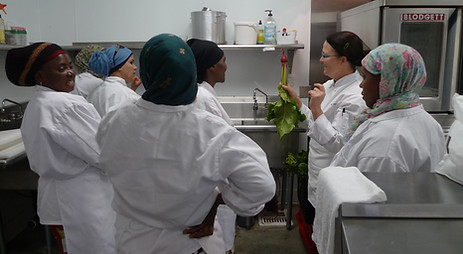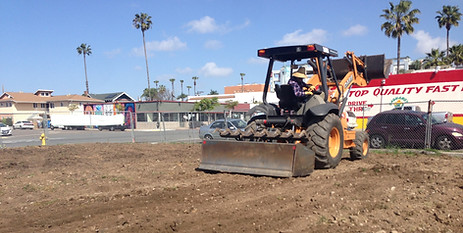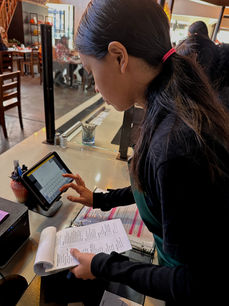Our Story
A San Diego Social Enterprise
MAKE Projects was initially born from the need to help lower-literacy refugee women gain English and job skills in an effective way and timely manner. While refugees who resettle to the U.S. come with a wide range of educational and professional backgrounds (such as those with a Ph.D. like Albert Einstein), there are some refugees – particularly women from more agrarian backgrounds – who were never given access to attend school or continue beyond primary grades.
In 2015, the Food and Farming Program (FFP) at the International Rescue Committee (IRC) in San Diego wondered if its popular community food projects – community gardens, farmers markets, aquaponic and incubator farms – could help address the employment challenges faced by not just refugee women but many other refugees, immigrants and low-income individuals. That year, the FFP designed two pilot programs – Project CHOP and Youth FarmWorks - to see if an employment-based model would be well-received and effective. The refugee and immigrant response in our programs was extraordinary (word of mouth referrals flooded in) and so we continued to incubate and improve our employment social enterprise model.
In 2016, St. Luke’s Episcopal Church reached out about some vacant land on 30th street and soon discussions for a church kitchen rehabilitation were in the works. In the spring of 2017, Youth FarmWorks relocated its entire 30 urban raised beds to a new North Park location while fundraising began for a new commercial kitchen remodel that would become a future home for Project CHOP. And in July 2019, Project CHOP moved into a newly rebuilt kitchen at St. Luke’s after two years of migrating between temporary commercial kitchen spaces in City Heights.
Both emerging social enterprise programs were gaining their hind legs in the fall and winter of 2019-2020. Project CHOP had been growing its catering business in rapid fashion while the farm and newly build mixed-use patio called Pop on 30th was beginning to unveil more community programs. Increasing collaboration between Project CHOP and Youth FarmWorks started to yield a stronger cohesive “MAKE Projects” identity.


And then, everything came to a sudden, quiet halt in March 2020 with the arrival of COVID-19.
While we closed the kitchen and paused all on-site operations with trainees and volunteers, the staff brainstormed and redesigned every program and business line. Our participant trainings grew stronger digital literacy components, our new business models were pandemic-proof and our team bonded over a commitment to survive through the challenges.
Lo and behold, the MAKE Projects team, program and business all emerged stronger and more successful than pre-pandemic levels. What’s more, our new business models (more customer communications as servers in the café, more detailed plating required with dine-in meals, operating credit card payments, etc.) also generate high-impact learning opportunities for our trainees.
Perhaps bold and audacious planning as a result of the pandemic has become a permanent part of MAKE Projects’ DNA. As we became clearer and more committed to our social enterprise mission and growth, the time became clear to spread our wings and form our own organization.
We are so grateful for the time to incubate at the IRC. And we are equally thankful for the transition to a fiscal sponsor partnership with Mission Edge San Diego from July 2021 through January 2023.
On February 1, 2023, MAKE Projects stood up its own 501c3 nonprofit organization! We have been steadily growing as a sustainable, strategic and high-impact social enterprise organization.
In these coming years, we are looking forward to growing our reach, scaling up our business and building a more inclusive San Diego through the wealth of food and culture that refugees and immigrants bring to our community. We are excited to explore the world through food and in so doing, become a bridge across cultures and communities.
Look how far we've come...























